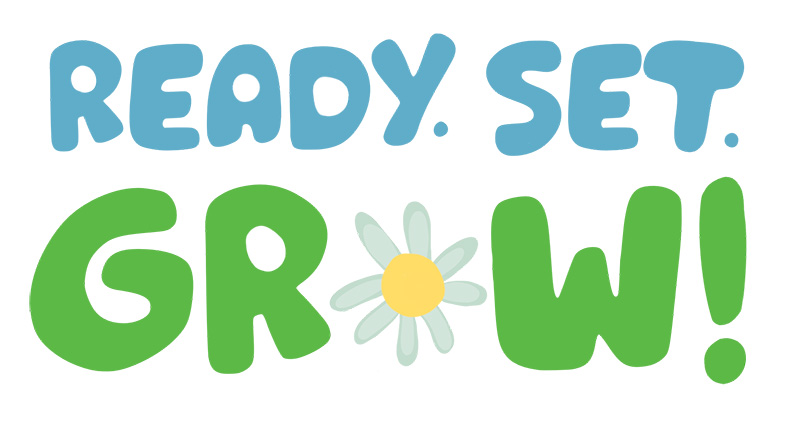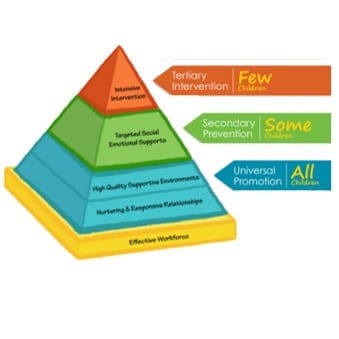Ready. Set. Grow!
Ready. Set. Grow, TN Voices Early Childhood Program provides support for educators and caregivers. The program offers training, consultation services, and technical assistance. These services are available at no-cost for early childhood centers, preschools, and elementary schools supporting children birth to 8 years old across the state of Tennessee.
What We Offer
The Early Childhood Program offers services that are designed to assist educators and families to understand, appropriately respond to, and prevent challenging behaviors, promote social-emotional development and positive behaviors in children, strengthen home-school partnerships, and reduce suspensions and expulsions from early education and care settings. The goal is to support the adults in a child’s life to promote the necessary social emotional skills for children to develop a “foundation for success” in the early years and beyond.
TN Voices Early Childhood Program offers supports for families and educators of children ages 0-8 in Tennessee.
Our Program aims to support children, families, and educators in three main ways:
- Promote mental health and social emotional well-being
- Reduce the use of suspension/expulsion practices by supporting educators with evidence-based professional development training, consultation, and related services
- Increase school readiness and positive learning experiences
Services include:
-
Child-Centered Consultation
-
Classroom Consultation
-
Programmatic Consultation
-
Family Coaching
-
Parent/Caregiver Support Classes
-
Educator Professional Development and Training
-
Technical Assistance
Who We Serve
Our Early Childhood Program offers support for teachers, administrators, parents, and caregivers of children birth-8 years old. We work with child serving agencies across the state, including Head Starts, voluntary Pre-K, faith-based Pre-Ks, and elementary schools.
Why It Matters
Evidence supports the importance of social-emotional learning in the early years. Research has shown that children who engage in persistent challenging behavior in the early years are at a greater risk of emotional and behavioral disorders as they grow older. (National Research Council, 2009; Shaw, 2013)
Children who enter Kindergarten without the necessary skills to regulate their behavior and strong emotions, establish relationships with other children and adults, and engage in social problem solving are less likely to experience positive outcomes in learning. Early educators also are becoming aware of the impact of trauma on the development of young children and know that trauma can be related to a child’s difficulty in relationships and social interactions with others and challenges with self-regulation and social skill development.
In addition to addressing challenging behavior in the early years, we know that focusing on the development of social-emotional skills should be a core component of every early childhood curriculum. Young children who have a strong foundation in social-emotional skills are more likely to experience later academic success and positive post-school outcomes. The preschool years are a time when children rapidly develop social skills, emotional understanding the ability to regulate emotions, and social problem solving. In addressing the needs of children exposed to trauma, educators are guided to build nurturing relationships with children, help children feel safe and secure, provide predictable routines and classroom structure, and teach social-emotional skills. (National Child Traumatic Stress Network, 2017)
This project is funded by the TDMHSAS.
The Pyramid Model
The Pyramid Model is a tiered approach built on the foundation of an effective workforce that provides universal supportive environments and nurturing relationships to all children. The secondary tier focuses on targeted social emotional teaching to children who need additional support in developing social emotional skills. The top tier targets those children whose needs have not been met through the previous tiers and need additional support through individualized interventions.

About the Pyramid Model
The Pyramid Model framework supports the social emotional development of all children.
The positive behavior support framework guides adults in viewing challenging behavior as a method of communication used when more appropriate skills have not yet been taught. The model supports educators and families in considering several key elements including nurturing and responsive relationships, high quality supportive environments, intentional instruction of social emotional skills, and individualized intervention for children with persistent challenging behavior.
Research shows that the Pyramid Model is effective in supporting culturally responsive practices, reducing implicit bias, and reducing exclusionary discipline practices. The following articles showcase research projects on the Pyramid Model:
The Pyramid Model – PBS in Early Childhood Programs and Schoolwide PBS
Expelling Expulsion: Using the Pyramid Model to Prevent Suspensions, Expulsions, and Disciplinary Inequities in Early Childhood Programs
To learn more about the Pyramid Model please visit https://challengingbehavior.cbcs.usf.edu/ or https://www.pyramidmodel.org/
(Excerpt from Hemmeter, M. L., Ostrosky, M., & Fox, L. (2020). Unpacking the pyramid model: A practical guide for preschool teachers. Baltimore: Paul H. Brookes Publishing.)





